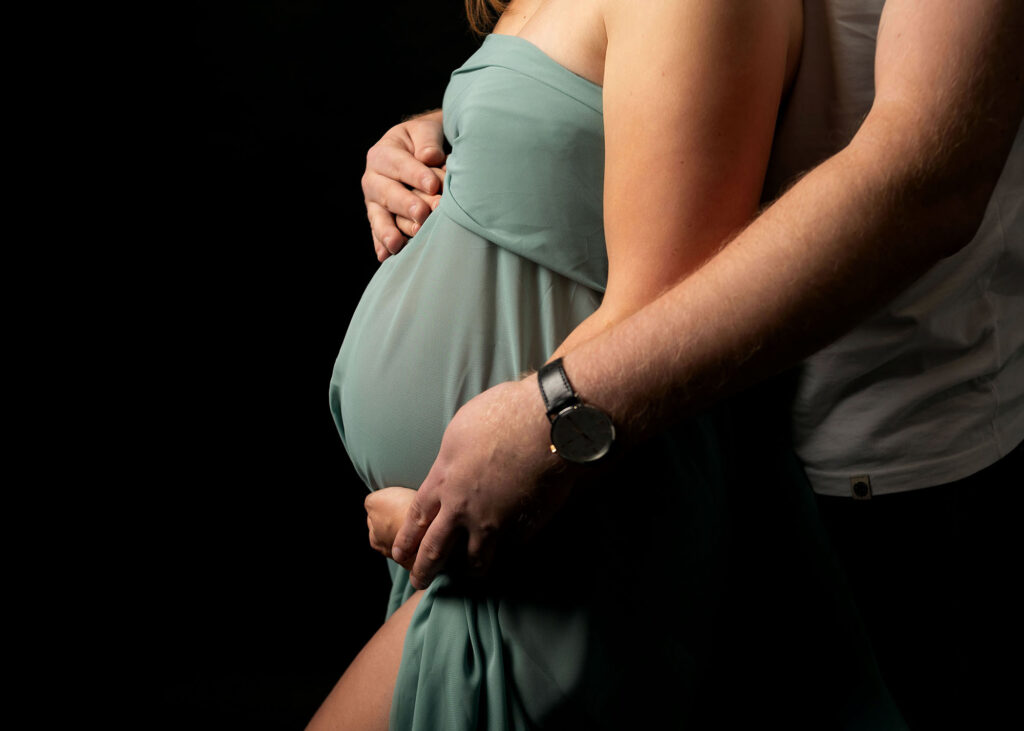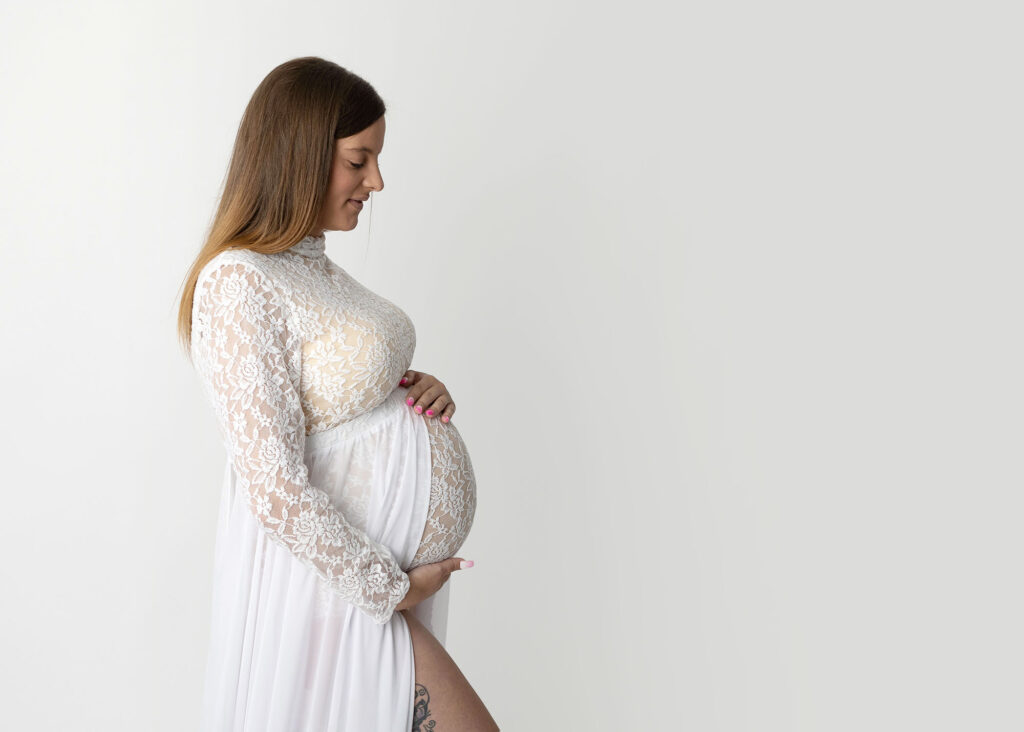From the moment of conception, your body begins the amazing process of creating a nurturing and supportive environment for your baby… so the next 9 months will be an incredible (and sometimes tiring) journey for you!
But every pregnancy is different, and the ways in which your body may change during this special time can vary.
Ready to learn more about how your body changes during pregnancy?
Here are eight potential ways you may experience transformation during pregnancy:
How your body changes during pregnancy: Morning sickness
Morning sickness is a common symptom of early pregnancy that can affect many women. It typically begins around the six-week mark of pregnancy and may last through the first trimester.
The most common symptoms of morning sickness are nausea, loss of appetite, and sensitivity to certain foods. While the exact cause of morning sickness is not fully understood, it is thought to be related to the hormonal changes that occur during pregnancy.
Eating small, frequent meals and snacks can help to reduce feelings of nausea and keep your energy levels up.
Moreover, ginger has been shown to have anti-nausea properties and can be consumed in the form of tea or ginger-flavoured sweets.
Weight Gain
One of the most noticeable changes during pregnancy is weight gain. This is necessary to support the growing baby and provide nourishment.
The amount of weight a woman gains during pregnancy can vary, but the average is around 25-35 pounds. It is important to pay attention to your weight gain and to follow the guidelines provided by your healthcare provider.
Of course, gaining too much or too little weight during pregnancy can have negative effects on both the mother and the baby.
Gaining too much weight during pregnancy can increase the risk of complications such as gestational diabetes, high blood pressure, and preterm delivery.
On the other hand, gaining too little weight can lead to low birth weight, causing long-term consequences for the baby’s health.
How your body changes during pregnancy: Changes in the Breasts
The breasts undergo significant changes during pregnancy in preparation for breastfeeding. As your body begins to produce more of the hormones estrogen and progesterone, your breasts may grow and become tender.
The areolas (the dark area surrounding the nipples) may also become darker and larger. These changes can make your usual bras feel uncomfortable and may require you to purchase new, properly fitting bras to help alleviate any discomfort.
To ensure that you have the proper support and comfort during pregnancy, it is a good idea to get professionally fitted for a bra.
Consider switching to a bra without an underwire, as these can offer support while also allowing for growth and flexibility.
Frequent urination
If you are still reading this… first of all thank you!
Also, it is worth reminding you that the NHS has a very detailed Month by Month guide to pregnancy that can help you prepare better for the changes that your body will go through. Here is the link: www.nhs.uk/pregnancy/week-by-week/
Back to our article…
Frequent urination is a common and normal part of pregnancy that many women experience. Hormonal changes during pregnancy cause the kidneys to work harder to eliminate toxins from the body, leading to an increased need to urinate.
As the baby grows, it may also put pressure on the bladder, contributing to the feeling of needing to urinate more often.
It is generally recommended to reduce your intake of large drinks a few hours before bedtime and to avoid caffeinated beverages, which can stimulate the bladder and increase the need to urinate at bedtime.
How your body changes during pregnancy: Your skin
Pregnancy can cause a range of skin changes, including stretch marks, acne, and darkening of certain areas of the skin.
Stretch marks, which are red or purple marks on the skin, are caused by the stretching of the skin during pregnancy. They are most common on the abdomen, breasts, and thighs, and tend to fade over time after pregnancy.
Acne can also be a common problem during pregnancy, due to the increase in hormones.
It is vital to use gentle skincare products and to avoid picking at any acne.
The skin on certain areas of the body, such as the face, nipples, and inner thighs, may also darken during pregnancy. This is due to an increase in melanin production and is known as the “mask of pregnancy” or “chloasma.” These changes usually disappear after pregnancy.
Increased flexibility in the joints
Another change that may occur during pregnancy is increased flexibility in the joints. This is due to the hormone relaxin, which is produced in higher quantities during pregnancy.
Relaxing helps to soften the cartilage, ligaments, and joints connecting bones within the body, aiding in the widening of the pelvis in preparation for birth and the movement of organs to make room for the growing baby.
Exercising during pregnancy is highly recommended, as the increased flexibility in the joints may make certain movements or activities more prone to injury.
Wearing supportive shoes and avoiding jerky exercises or heavy lifting can help to protect the joints.
Changes in the Reproductive System
The reproductive system undergoes significant changes during pregnancy.
According to the Mayo Clinic, the uterus grows from the size of a pear to the size of a watermelon during pregnancy.
The cervix becomes softer and more pliable in preparation for childbirth. The uterus also grows and expands to accommodate the growing baby.
The fallopian tubes and ovaries also change, with the ovaries producing more estrogen and progesterone to support pregnancy.

Fatigue
As your body undergoes numerous changes and your baby grows, it is normal to feel fatigued. The first trimester can be particularly exhausting as the body adjusts to the sudden surge of hormones and the physical demands of pregnancy.
By the second trimester, you may start to feel more energetic, but as the baby becomes bigger and heavier in the third trimester, you may find that you are once again feeling tired.
Getting enough sleep during pregnancy is crucial for both your physical and emotional well-being. To help facilitate a good night’s rest, consider using sleep pillows to support your belly.
How your body changes during pregnancy
Pregnancy is a time of great physical and emotional change for any woman. As the body prepares to carry and nourish a growing baby, several changes will occur, from morning to stretch marks and fatigue.
These changes are all a normal part of pregnancy and are caused by the various hormonal and physical changes that occur as the body adapts to support the developing life within it.
It is significant to remember that every woman’s experience with pregnancy is unique, and the specific changes that one person experiences may be different from those of another.
Some women may experience all of these changes, while others may only experience a few. It is important to listen to your body and pay attention to any changes that you are experiencing, and consult with your healthcare provider if you have any questions or concerns.
Jane Tatham Photography specialises in Newborn, Baby and Maternity Photoshoots for families in and around Rossendale, Lancashire.
Want to know more about my Newborn Sessions? Read here…


